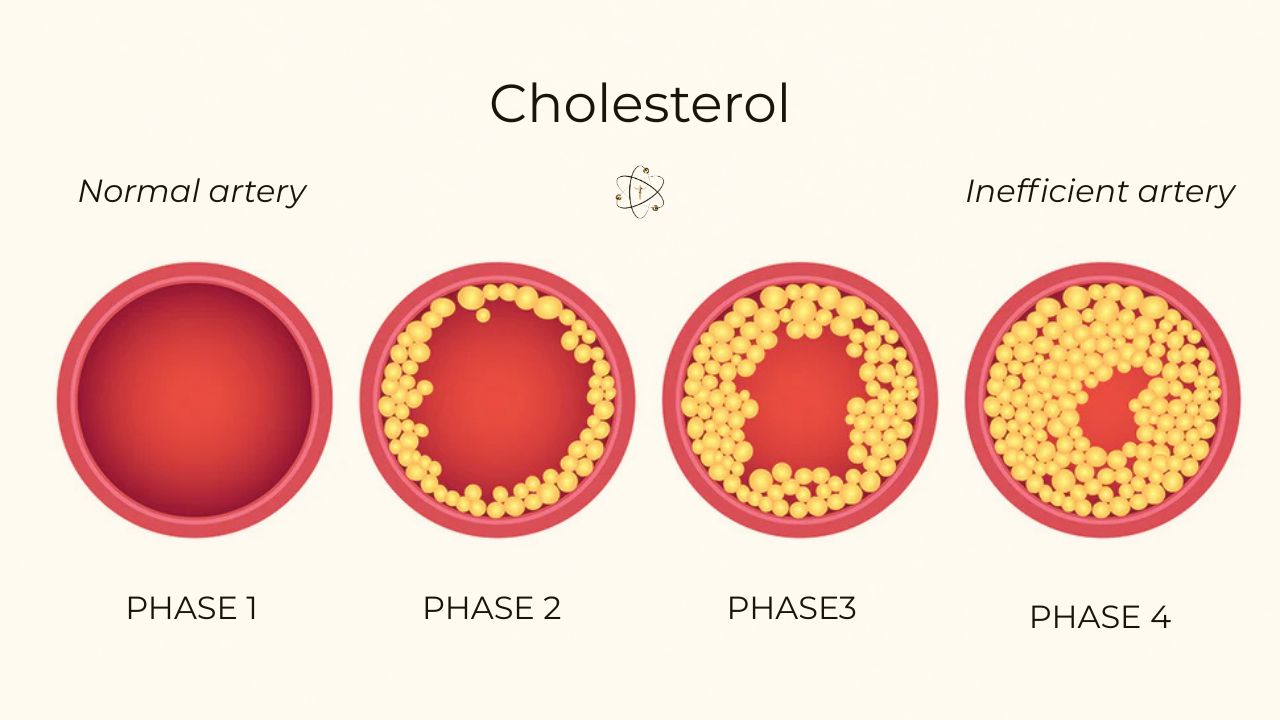
Cholesterol matters because it plays a central role in your cardiovascular system. It helps build cells and hormones, but when unbalanced, especially with high LDL (“bad”) cholesterol. It increases the risk of heart disease and stroke.
At ZLife we consider cholesterol not just as a number, but as a system. It's about how well your body moves, uses, and clears fats under physical and metabolic stress. Managing it properly supports heart health, energy, recovery, and long-term wellness.
LDL (low-density lipoprotein) is often called “bad” cholesterol because it can deposit in artery walls, leading to plaques and narrowing of arteries. HDL (high-density lipoprotein) is “good” cholesterol because it helps remove excess cholesterol
from the blood. Maintaining a low LDL and high HDL profile supports arterial flexibility and oxygen delivery. Fundamental to stamina, cognitive health resilience and VO2 max potential. As we saw on previous article VO2 max for longevity.
Total cholesterol: below 200 mg/dL
LDL cholesterol: below 100 mg/dL
HDL cholesterol: above 60 mg/dL
Triglycerides: below 150 mg/dL
✔ High-fibre foods (soluble fibre binds cholesterol in your gut)
• Oats (3g of beta-glucan/day can reduce LDL by 5–10%)
• Beans, lentils, chickpeas
• Apples, citrus fruits
✔ Healthy fats
• Extra virgin olive oil (rich in polyphenols)
• Avocados
• Fatty fish like salmon and sardines (contain both healthy fat and anti-inflammatory omega‑3s)
✔ Plant sterols and stanols
Found in fortified foods or naturally in nuts and seeds. Compete with cholesterol for absorption

✘ Saturated fats from processed meats, cheese, and butter
✘ Trans fats (in some packaged snacks or baked goods)
✘ Refined carbs and sugars (promote higher triglycerides and small LDL particles
Yes. Cardiovascular exercise improves HDL and lowers triglycerides. Even short daily walks help improve cholesterol transport and metabolism. VO2 max training creates deep systemic improvements, making your body more efficient at clearing excess fats and reducing arterial risk. We often see lipid panels improve in as little as 4–6 weeks with consistent training, targeted nutrition, and micronutrient support.
At ZLife, we treat cholesterol as a whole-body efficiency marker.
We analyse how your cardiovascular system works under stress and how your lifestyle regulates inflammation.
This lets us help even high-performing individuals or busy professionals reduce silent cardiovascular risks, without medication dependency. Through a blend of movement, nutrient-rich food, and recovery. Using every aspect of health to maximise interventions while maximising efficiency timing.


